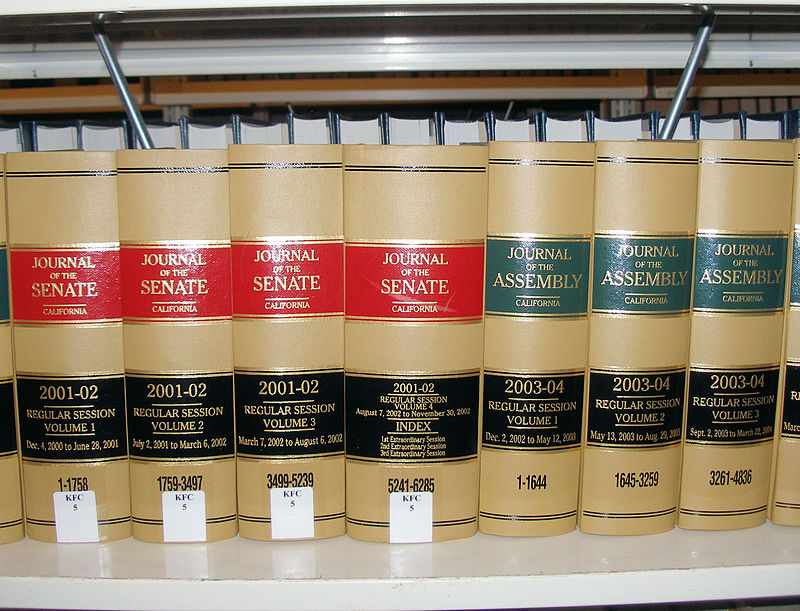
The Legislative Bill Room, California State Capitol. (Photo: ca.gov)
Drafting a Bill’s Title
The title should be drafted to fit the bill, rather than the bill being drafted to fit the title
By Chris Micheli, October 16, 2020 2:25 am
Pursuant to Article IV, Section 9 of the California Constitution, there is a requirement for each bill to have a title. The constitutional provision states: “A statute shall embrace but one subject, which shall be expressed in its title. If a statute embraces a subject not expressed in its title, only the part not expressed is void. A statute may not be amended by reference to its title.” The title provides a description of the bill.
Because of this constitutional provision, a bill’s title must be legally sufficient. A bill drafter usually prepares the title after the body of the bill has been drafted. As each bill is required to contain one broad subject matter, that subject needs to be expressed in the title of the bill. Pursuant to the California Constitution, an enacted bill is void if the subject is not expressed in the title.
As a general rule, the title is broad enough to be germane to the same general subject. As a result, the title must identify generally the subject of the bill. The purpose of this bill is that, by reading the bill’s title, a person should be able to determine whether the bill deals with. In addition, the legal purpose of the constitutional title requirement is to prevent the concealment of the true nature of the provisions of the bill from the legislature and the public.
As a result, the title of the bill serves as a means of identifying the subject of the bill and so it is important that the title should describe what a bill is about, rather than what the bill does or how the bill accomplishes its purpose. Keep in mind that the requirement of Article IV, Section 9 is mandatory and a bill that fails to comply with this requirement is void. In order to comply with this requirement, the title basically needs to give notice about the subject matter of the bill.
As a general rule, a bill title begins with the phrase, “an act relating to.” For example, SB 5 from the 2019-20 California Legislative Session has the following title: “An act to add Section 41202.6 to the Education Code, to add Part 4 (commencing with Section 55900) to Division 2 of Title 5 of, and to add Division 6 (commencing with Section 62300) to Title 6 of, the Government Code, and to add Section 97.68.1 to the Revenue and Taxation Code, relating to local government finance.” This language expresses the subject of the bill in its title.
The practice in California and many other states is to include the references to code sections and whether the bill adds, amends or repeals sections. The title of a bill should designate the subject of the bill in general terms, not in detail. The title may be broader than the subject matter that is dealt with in the body of the bill, but it may not be narrower.
This is why a reader of a bill might see in the title of a bill, “relating to personal income taxation,” rather than a title such as: “An act relating to personal exemptions under the income tax law for persons 65 years of age or older.” If a title were to include a detailed description of the subject of the bill, then the title would have to express every detail in the bill, otherwise the detail of a bill that was not included in that title might be held invalid.
On the other hand, a bill title so broad may not comply with the constitutional requirement set forth in Article IV, Section 9. For example, the Oregon Supreme Court ruled that the title “Relating to the activities regulated by state government” failed to identify a single subject as it was so broad that it did “little more than define the universe with respect to which the legislature is empowered to act.”
Generally, bill drafters prepare the bill title after the other parts of the bill have been finished. In other words, the title should be drafted to fit the bill, rather than the bill being drafted to fit the title.
- Duties of Law Enforcement in Emergency Protective Orders - July 12, 2025
- Automatic Repeal of State Agency Reports - July 11, 2025
- Confidential Marriages in California - July 10, 2025







